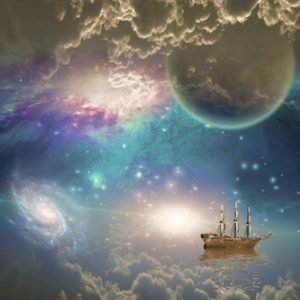I started learning the guitar when I was 17; by 19, I was playing and singing my songs at open mics. I was beside myself with stage fright most of the time, even though I was routinely told that I was very good, and to not stop—fame awaited me! Despite the validation and encouragement, I basically hated performing because I got so nervous. My main strategy for this dilemma was to drink.
I started thinking of Janis Joplin and Jimi Hendrix, musicians who died drug-related deaths. I felt I understood: it was so much easier to play for others when I was using alcohol or certain drugs. But I didn’t want my music to depend on such things. Eventually I stopped performing altogether because I wanted to stop drinking. I stopped playing music publicly for a few years, disappointing others as well as myself.

I continued to play in private, and nurtured a rich fantasy life of becoming an international superstar with the respect and admiration of countless others, and many adoring male fans. Fantasy is a favourite for many sex and love addicts, and for addicts in general. The future holds all promise of liberation, happiness, and success! Or so we tend to think.
Eventually—and it took some time—I realized that if I could not play small shows, I could not play for a stadium of people. It was time to get back to work. I started booking my own shows and getting paid to play.
Gradually, my performance anxiety faded somewhat, and my confidence grew, slowly. After some time, however, I began to see that my music, although no longer dependant on substances, was enmeshed with my addiction to sex, men, and validation. When I entered recovery for a serious addiction to sex and unhealthy relationships, I could no longer write music. The inspiration, it seemed, was gone. For the most part, I stopped writing new material. When COVID-19 struck the world, I stopped performing altogether, so I’ve had some time to reflect on my identity as a musician and as a recovering addict.
I wonder at art and addiction so often seeming to be inextricably linked. I wonder how to continue to feel inspired to play and write without the ups and downs of romance—commonly a fertile ground for creating music for many musicians. For these questions, I have no definitive answers.
Some things are clear enough, however. My recovery from addiction is my priority, because I know that true well-being is impossible without it. I only need to look to icons like Kurt Cobain and Chris Cornell, who both attained incredible success in music and whose lives ended tragically in suicide, to see that a person can have apparently everything, but it’s not enough if they do not feel okay inside.
For now, when I pick up my beloved instrument and sing a song, I will do so with as much presence as I can, free from ulterior motives, and try to be at one with the art form that I have had such a long and complicated relationship with.
